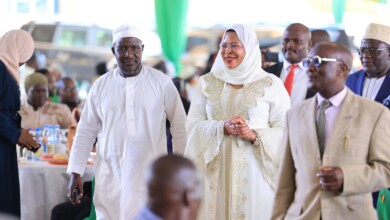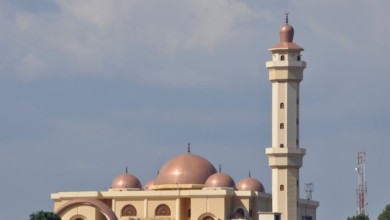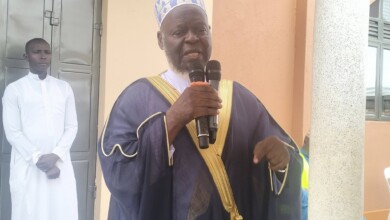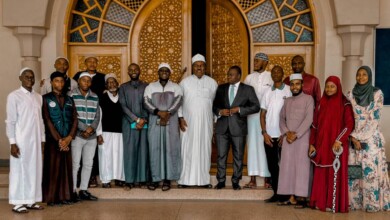Sheikh Kamoga urges ban on provocative street preaching
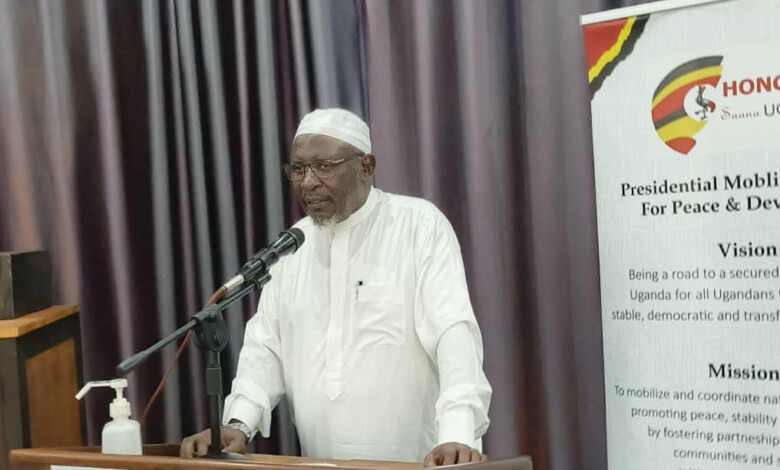
By Ahmed Idriss
The Amir Ummah, Sheikh Muhammad Yunus Kamoga, head of Jumiat Dawatil Tabligh Al Salafiya, has warned that provocative street preaching by some Born-Again Christians and Muslims is fuellingreligious tensions in Uganda and could escalate into extremism.
Kamoga highlighted cases where preachers deliberately position themselves in communities of other faiths, openly criticizing and condemning their beliefs.
“This may seem like a minor issue now, but it will inevitably lead to chaos. I have seen pastors preaching near mosques, making disparaging remarks about Islam. Imagine the reaction of those inside the mosque hearing their religion being attacked in public,” Kamoga explained.
He made these remarks while addressing counter-terrorism officers from the Internal Security Organisation (ISO) and police during the launch of Hongera Saana, a presidential initiative aimed at eliminating violent extremism.
Street preaching in Uganda has been controversial, with past attempts to ban it due to noise pollution. Some have viewed it as a driver of religious extremism.
In 2023, two pastors were arrested in Soroti for insulting the Muslim faith, while last year, street preachers at the Namugongo Martyrs’ Shrine provoked a confrontation by denouncing Catholic beliefs.

Kamoga warned that ongoing provocations could push opposing faith groups into retaliation.
He commended the Catholic and Anglican churches for avoiding confrontational evangelism and urged authorities to ban street preaching to preserve religious harmony.
Stephen Chwinyaa, Director of Counterterrorism at ISO, acknowledged that religious extremism has fuelled past conflicts in Uganda, citing cases like Kibwetere, the LRA, Alice Lakwena, and the ADF.
“A positive step forward is the fact that security officials can now sit and engage in conversation with figures like Sheikh Kamoga, something that would have been unthinkable in previous years,” he noted.
He added that ADF recruitment remains active in Busoga and West Nile, now targeting Christian youth by luring them with job offers in DRC gold mines where they are later radicalized.
Deputy AIGP David Wasswa Ssengendo, Director of Counterterrorism in the Uganda Police, stressed that violent extremism cannot be defeated by force alone.
“It would be more cost-effective for the government to invest in prevention and community engagement than to spend large sums on intelligence gathering and programs aimed at targeting violent extremists,” he said.
Sharon Lesa Nyambe, Head of the United Nations Office on Drugs and Crime in Uganda, confirmed that research has identified provocative preaching as a contributing factor to extremism. She said Uganda is developing a strategic plan to combat the issue.
Ashirafuh Muyomba Komugasha, National Coordinator of Hongera Saana, said the initiative is working to counter extremism while promoting peace, stability, and development.
“Our mission is to empower communities, build partnerships, and support initiatives that create a brighter future for every Ugandan. Together, we can achieve a peaceful and prosperous Uganda,” he stated.
He added that socio-economic projects would soon be launched in Mityana, Kiboga, and Kyankwanzi.


